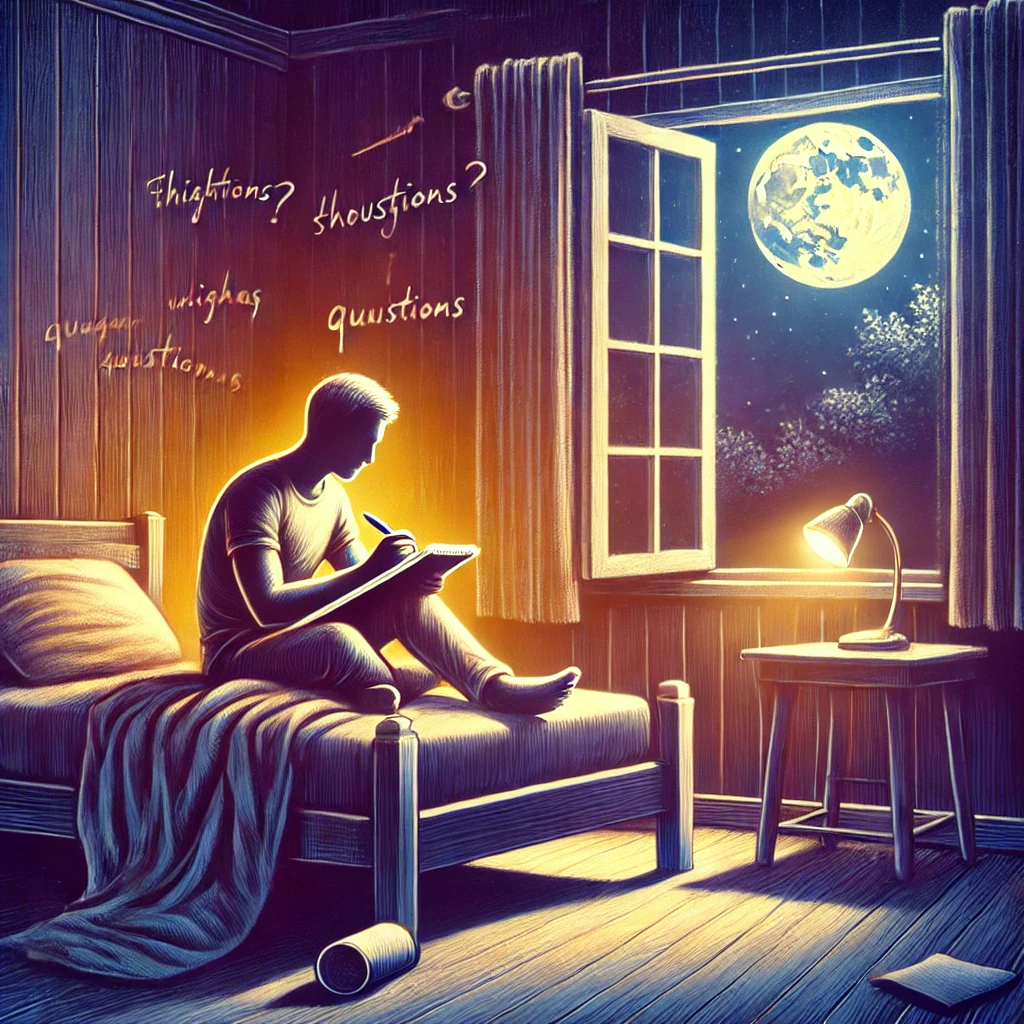You insomnia victim, take the pen and paper to look for answers to help you.
Insomnia victims can also find a solution by just taking a pen and paper.
Things that stop your sleeping may be thinking about what is expected of you to be done the following day; all these things you might still have in mind.
A study conducted on employees of an IT company in Germany, who hadn’t finished their tasks by the end of the week, found that they were thinking a lot about unresolved problems and unfinished work, compared to other employees who completed their tasks and had no issues with stress or insomnia.
Christine Syrek from Trier University wrote in her research, “Such results show that ‘an unfinished work at the week’s end has consequences for employee health and further leads to a sleepless weekend.”A working mind” often pre-occupies itself about negative things that have ever happened to you or what are expected to happen in your near future.
If you are busy with tasks in the late morning, you might find it hard to sleep because your mind keeps thinking about the unfinished tasks in front of you and the work waiting for you that day.
Try reading something before you go to sleep or think about the things around you, such as the room you are in, or listen to your heartbeat and the sensations around you. Avoid thinking about what you will do the next day so that your mind can settle.
In contrast, putting down on paper all that is going through your head and making a to-do list for what you are going to do helps with overthinking. This is evident from the research conducted in the United States. It depicts that writing plans before sleeping soothes the mind and provides faster sleep.
Michael Scullin, director of the Neuroscience Laboratory at Baylor University in the United States, asked a group of volunteers to write down everything they had accomplished before going to bed. He then asked another group to list unfinished tasks that they needed to complete the next day, and the research indicated that the second group fell asleep more quickly.
Instead of having your mind occupied by scattered tasks, it was suggested that you arrange them according to priorities.
Scientists rely not only on the assessment done in the volunteer sleep study, but they also relied on another study type known as the polysomnography study. Through this study, it was shown that your brain does an immense amount of work when you are awake. In this experiment, the volunteers were wired to monitor their brain activity, breathing, and movements.
You take guiding steps for yourself toward where you are, and it reduces mental workload or stress that hinders relaxation and falling asleep.
This can be done with an organized to-do list or a schedule for the following day using a piece of paper and a pen, or note-taking apps on your smartphone. It would mean reduced overthinking before sleeping.
Instead, it would be better to categorize your tasks rather than listing all of them in just one general list, that can make it too long.
In Professor Scullin’s study, those busy people who made more than 10 task lists fell asleep faster, on average 15 minutes earlier, than those not writing to-do lists at all.






